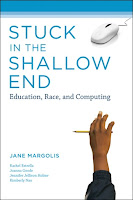Dear Brothers and Sisters,
This is a letter of caution and encouragement.
On August 2nd, 2010, 15-year-old DeKendrix Warner
was enjoying the cooling waters of the Red River outside of Shreveport, Louisiana. His family and some friends had gathered for a late-summer barbeque. Several of
the groups teenagers were splashing and playing along the shallow bank, when
suddenly DeKendrix slipped into a 25-foot deep drop off. He didn’t know how to swim.
He yelled for help. Three of his cousins, and three of his friends jumped into
action to save him. None of them knew how to swim. Not 18-year-old Litrelle
Stewart, not 15-year-old LaTevin Stewart, not 17-year-old LeDarius Stewart, nor
13-year-old Takeitha Warner, nor 14-year-old JaMarcus Warner, and not 17-year-old
JaTavious Warner; they all drowned. None of their parents knew how to swim;
they watched helplessly as their children sank one-by-one beneath the river’s
surface, thrashing and screaming for help.
A man named Christopher Patlan heard the screams and saw
what was happening. He was close enough to the scene that he was able to dive
into the water and save one child: DeKendrix.
The six children that perished, the parents who watched
powerlessly as they died, and DeKendrix are Black.
Mr. Patlan is White and Hispanic.
According to the Centers for Disease Control, Black children ages 5 to 19 drown at 5.5 times the rate of White children. Beneath the devastation
that resulted from the ostensibly preventable loss of young, precious lives, is
a legacy of bondage, discrimination, and segregation.
And the history and legacy of disparity in water safety knowledge
and experience is eerily parallel to computer science.
 In Stuck in the Shallow End: Education, Race, and Computing,
Researcher Jane Margolis et. al, explain how the relationship of grade school
structures, course offerings, student-to-counselor ratios, and belief systems held
by students, parents, and teachers, has led to Blacks and Latino/as receiving a
disproportionately low number of undergraduate and advanced degrees in computer
science (around 7% according to American Community Survey data). Ms. Margolis
connects today’s inequalities in access to rigorous computer science education to
the past when Black slaves were forbidden to learn how to swim for fear they
would escape, and Jim Crow segregation that prevented Black people from using public
pools where they would have learned and refined swimming and water safety skills.
In Stuck in the Shallow End: Education, Race, and Computing,
Researcher Jane Margolis et. al, explain how the relationship of grade school
structures, course offerings, student-to-counselor ratios, and belief systems held
by students, parents, and teachers, has led to Blacks and Latino/as receiving a
disproportionately low number of undergraduate and advanced degrees in computer
science (around 7% according to American Community Survey data). Ms. Margolis
connects today’s inequalities in access to rigorous computer science education to
the past when Black slaves were forbidden to learn how to swim for fear they
would escape, and Jim Crow segregation that prevented Black people from using public
pools where they would have learned and refined swimming and water safety skills.
Perhaps DeKendrix’s cousins and friends would still be
present, if that past never was.
In closing, I encourage you to read Margolis’s work as it
beautifully lays out the case for re-thinking and re-designing the way Black children
are prepared to take their places in the rapidly and incessantly evolving
global economy. All Black children will not and do not need to major in
computer science or become programmers. But, the problem solving skills characteristic
of a proper computer science education can go a long way toward helping young
Brothers and Sisters move people of color toward first economic, then social,
and thus political parity.
Sincerely,
Technology and the Brothers
Cullen Jones, Swimmer, Gold-Medalist, World Record Holder, Brother
Follow Me on Twitter: @TechAndDaBros



No comments:
Post a Comment